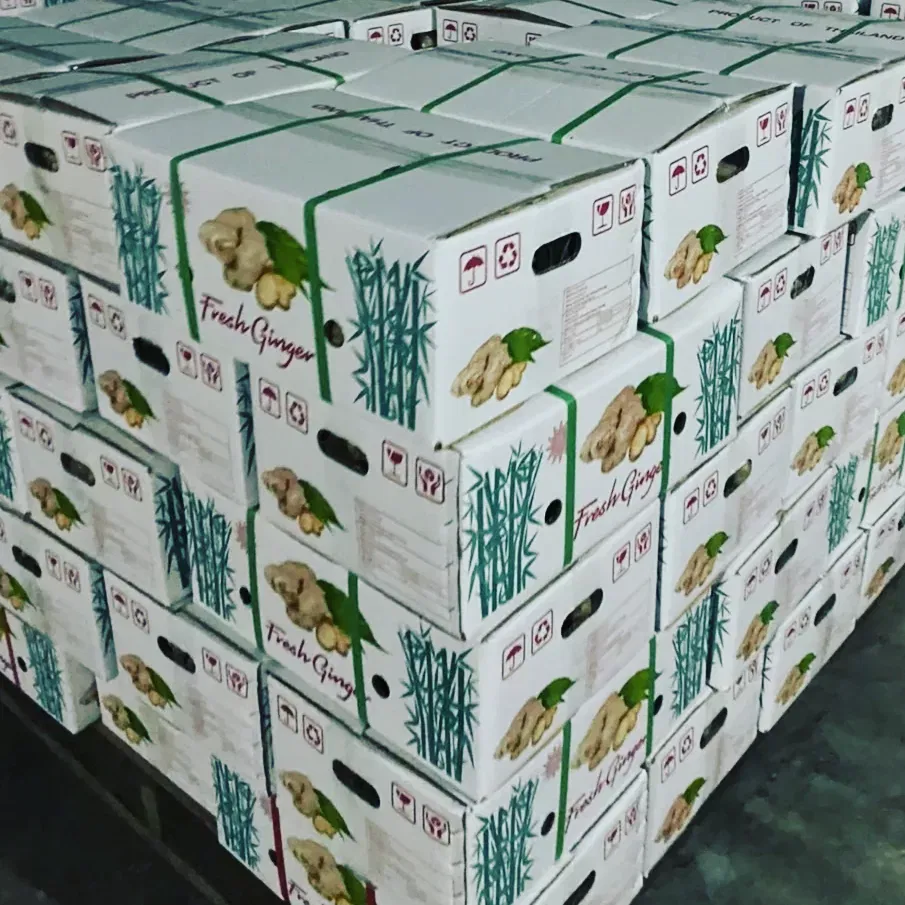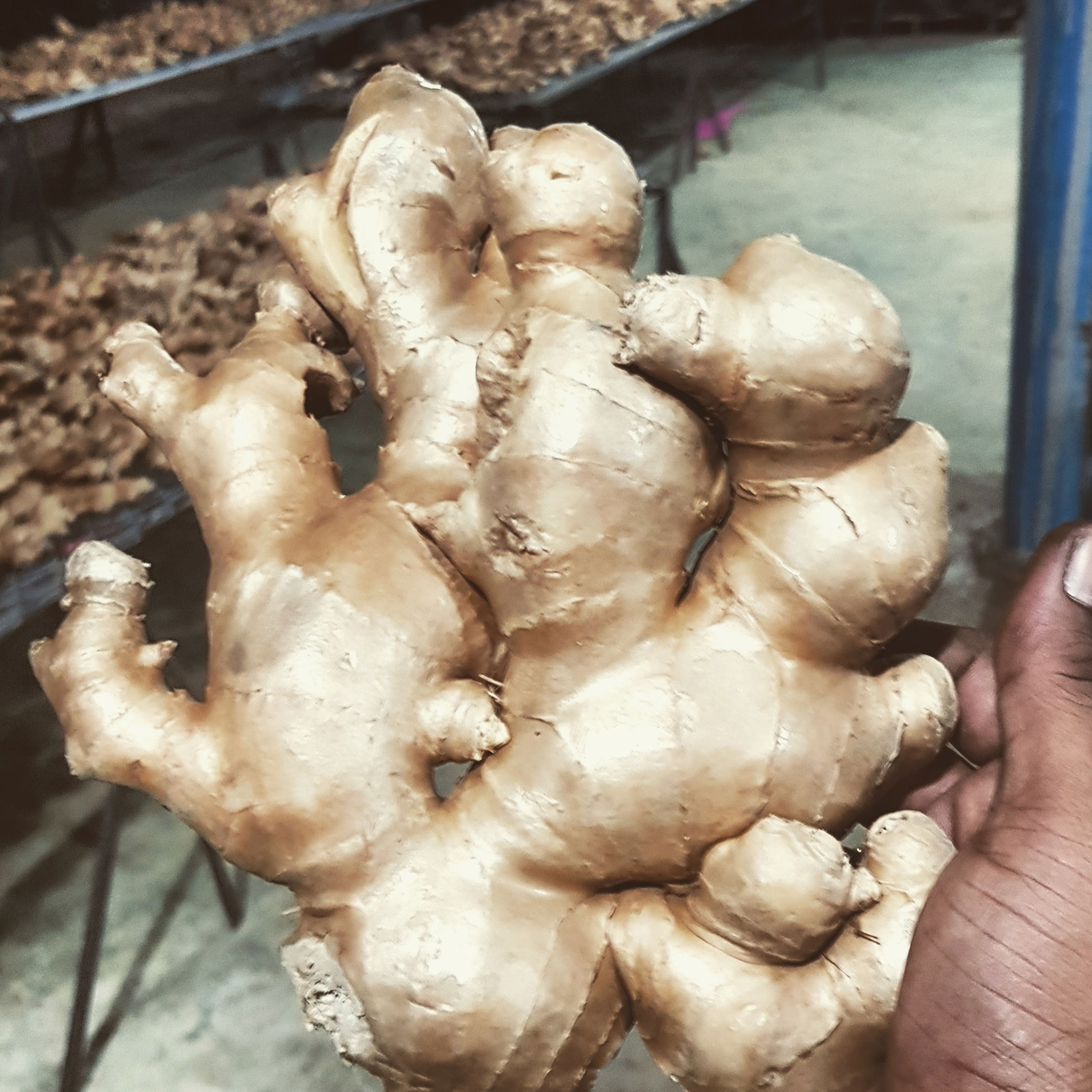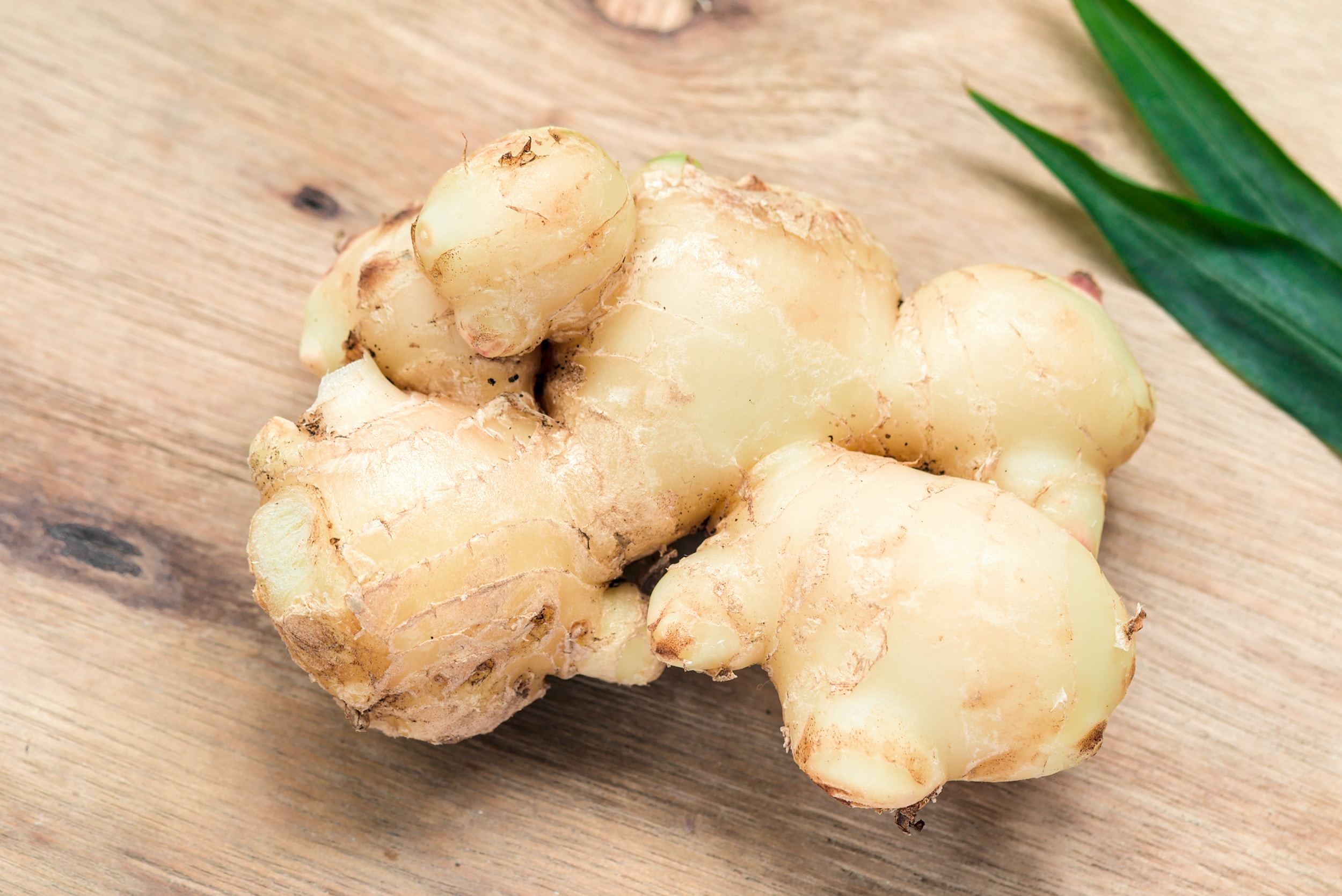The Impact of Thailand's Ginger on Malaysia's Market
Ginger is a popular spice with a long history of medicinal and culinary use. In Malaysia, ginger is a staple ingredient in many dishes and is also used extensively in traditional medicine. While there are many countries that produce ginger, Thailand has emerged as a leader in the industry, particularly in the Malaysian market.
With favorable growing conditions, advanced farming techniques, and a focus on quality, Thailand's fresh ginger has gained a reputation for its unique flavor and health benefits. In this article, we will explore Thailand's ginger industry and its impact on the Malaysian market, as well as the factors contributing to its success, challenges faced, and the outlook for the future of the industry.

Introduction: Overview of Thailand's Ginger Industry
Thailand's Ginger Industry: An Overview
Ginger is one of the most popular spices in the world, with numerous health benefits and a unique, warm flavor that adds depth to both sweet and savory dishes. Thailand is one of the world's leading producers of fresh ginger, and their success in this area has contributed significantly to the global ginger market. With ideal climate and soil conditions, effective farming techniques, and a long tradition of ginger cultivation, Thailand's ginger industry is a prime example of successful agriculture.
The Impact of Thailand's Ginger on Malaysia's Market
Ginger: A Popular Spice in Malaysia
Thailand's Ginger Market Share in Malaysia
Malaysia is a major consumer and importer of ginger, with the spice playing an essential role in the country's rich culinary traditions. Thailand's ginger dominates the Malaysian market, accounting for a significant portion of the imported ginger sold in the country. The popularity of Thailand's ginger in Malaysia is due to the high quality of the product and its competitive pricing, making it a more attractive option compared to other sources of ginger.

Factors Contributing to Thailand's Success in Ginger Production
Climate and Soil Conditions Favorable for Ginger Cultivation
Ginger Farming Techniques and Innovations
Thailand's success in ginger production is due to a combination of ideal climate and soil conditions and advanced farming techniques. Ginger thrives in tropical climates with abundant rain, warm temperatures, and well-draining soils, all of which are present in many parts of Thailand. Farmers in Thailand have also developed innovative techniques such as intercropping and organic farming to optimize the production of high-quality ginger crops. These factors have contributed to Thailand's reputation as a leader in ginger production.

Health Benefits of Thailand's Fresh Ginger and Its Popularity in Malaysia
Medicinal Properties of Ginger and Their Health Benefits
The Role of Ginger in Malaysian Cuisine and Culture
Thailand's fresh ginger is renowned for its numerous health benefits, including its ability to soothe nausea, improve digestive health, and reduce inflammation. These medicinal properties have contributed to ginger's popularity in Malaysia, where it is used in traditional dishes and drinks to enhance flavor and provide health benefits. Ginger is an essential ingredient in Malaysian cuisine, used in savory dishes such as curry and stir-fry, as well as sweet treats like ginger tea and desserts. Its versatility and health benefits have made ginger a staple of Malaysian culture and cuisine, with Thailand's fresh ginger playing a significant role in satisfying the consumer demand for this popular spice.
Challenges and Opportunities for Thailand's Ginger Industry in Malaysia
Thailand's ginger industry has been a leader in Malaysia, but it still faces several challenges. One of the main obstacles is competition from other ginger producers in the region. Countries like India, China, and Vietnam also produce large quantities of ginger, which puts pressure on Thailand's industry to maintain its market share.
Another challenge for Thailand's ginger industry is the need for sustainable farming practices. Ginger is a sought-after crop in Malaysia due to its many health benefits, but over-reliance on chemical fertilizers and pesticides can have negative environmental and health impacts.
Despite these challenges, there are opportunities for growth in Thailand's ginger industry. As more consumers become health-conscious and demand for natural and organic products increases, there is potential for Thailand to differentiate itself by producing high-quality, sustainably grown ginger.

Competition from Other Ginger Producers in the Region
As mentioned earlier, competition from other ginger producers in the region is one of the biggest obstacles facing Thailand's ginger industry in Malaysia. Other countries like India and China produce large volumes of ginger, which can put pressure on Thailand's industry to maintain its market share.
To stay competitive, Thailand's ginger industry must differentiate itself by producing high-quality ginger that meets the demands of consumers. This can be achieved by investing in research and development, improving farming techniques, and implementing sustainable practices that reduce the industry's environmental impact.
The Need for Sustainable Ginger Farming Practices
The growing demand for ginger has put pressure on farmers to increase their yields, which can result in overuse of chemical fertilizers and pesticides. This not only harms the environment but can also compromise the health of consumers.
To address this issue, Thailand's ginger industry must promote sustainable farming practices. This includes reducing the use of chemical inputs, embracing organic farming, and adopting practices that conserve soil health and biodiversity.

Future Outlook and Potential for Growth in the Ginger Industry
Thailand's ginger industry has a bright future in Malaysia and beyond. With growing demand for natural and healthy products, there is potential for the industry to expand its reach and offer new products to consumers.
Emerging Trends in Ginger Consumption and Production
One of the emerging trends in ginger consumption is the use of ginger in functional foods and drinks. Ginger is a popular ingredient in health drinks, energy bars, and other functional foods due to its anti-inflammatory and antioxidant properties.
There is also an increasing demand for organic and sustainably grown ginger products. This presents an opportunity for Thailand's ginger industry to differentiate itself from other producers in the region and tap into growing niche markets.
Potential for Expanding Ginger Exports to Other Markets
Besides Malaysia, Thailand's ginger industry has the potential to export its products to other markets. Countries like the United States, Japan, and Europe offer significant opportunities for exports of ginger products, given the growing demand for natural and healthy foods.
To tap into these markets, Thailand's ginger industry must maintain high-quality standards and implement sustainable farming practices. It must also invest in marketing and promotion to raise awareness about its products and their benefits.

Conclusion: Lessons Learned and the Role of Thailand's Ginger in the Global Market
Thailand's ginger industry has come a long way in Malaysia and has a promising future ahead. To maintain its position as a leader in the ginger industry, it must embrace innovation and collaboration while promoting sustainable farming practices.
The Importance of Collaboration and Innovation in Expanding the Ginger Industry
Collaboration and innovation are critical to the continued growth of Thailand's ginger industry. By partnering with stakeholders throughout the supply chain, including farmers, processors, and retailers, the industry can improve product quality, reduce costs, and increase efficiency.
Thailand's ginger industry must also embrace innovation by investing in research and development. This includes developing new products, improving farming techniques, and adopting new technologies that reduce the industry’s environmental impact.

Thailand's Ginger: A Key Player in the Global Spice Trade
Thailand's ginger is a valuable commodity in the global spice trade. Its reputation for high quality, sustainably grown ginger products has helped it maintain a competitive edge in the industry.
As demand for ginger and other natural products continues to grow, Thailand's ginger industry is poised to play an even more significant role in the global market. By embracing sustainable practices, promoting innovation, and collaborating with stakeholders, it can continue to grow and thrive. In conclusion, Thailand's ginger industry has made a significant impact on the Malaysian market with its high-quality ginger products. Through innovation and collaboration, Thailand has managed to overcome challenges and make the most of opportunities in the industry. As the demand for ginger continues to grow globally, Thailand's ginger industry is well-positioned to capitalize on emerging trends and expand its reach in the international market.

FAQ
What makes Thailand's ginger unique?
Thailand's ginger is known for its unique flavor and aroma due to the country's favorable growing conditions, including fertile soil and a warm climate. The ginger is also grown using advanced farming techniques that prioritize quality and sustainability.
Why is ginger popular in Malaysia?
Ginger is a staple ingredient in many Malaysian dishes, including soups, curries, and stir-fries. It is also used extensively in traditional medicine for its medicinal properties, such as relieving nausea and reducing inflammation.
What are the challenges faced by Thailand's ginger industry?
One of the main challenges faced by Thailand's ginger industry is competition from other ginger-producing countries in the region, such as China and India. Additionally, there is a need for sustainable farming practices to ensure the long-term viability of the industry.
What is the outlook for Thailand's ginger industry?
The outlook for Thailand's ginger industry is positive, with emerging trends in ginger consumption and production globally. Thailand's ginger is well-regarded for its quality, and there is potential for expanding exports to other markets beyond Malaysia.
